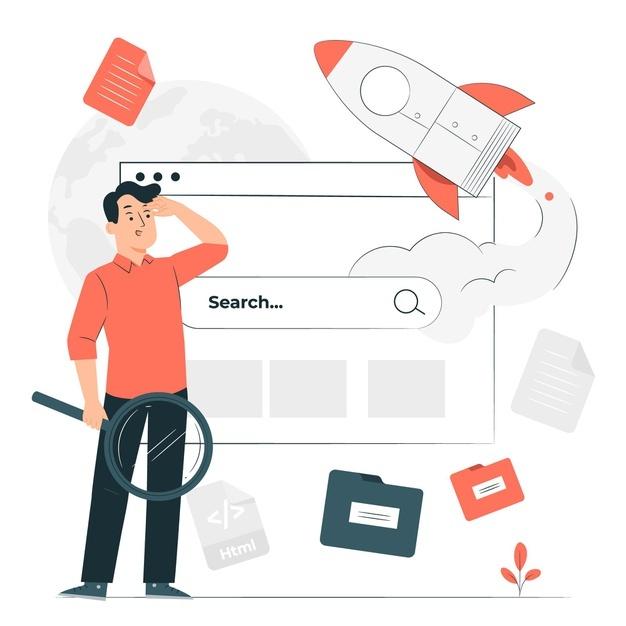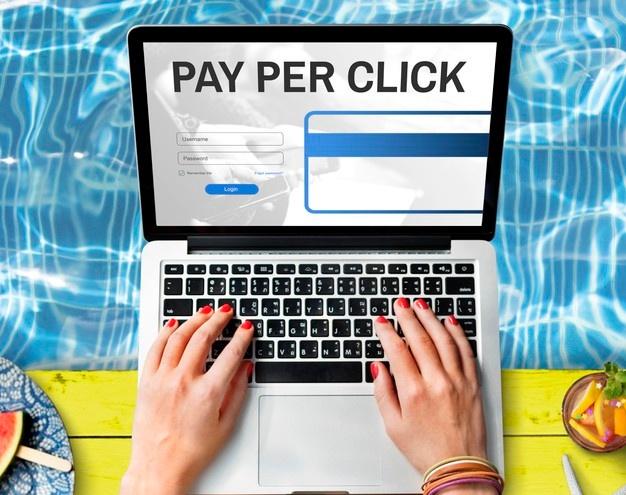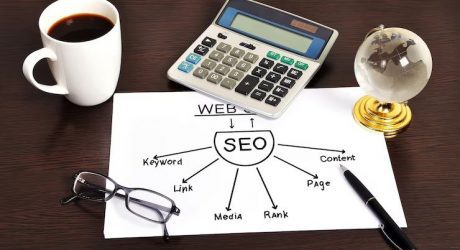Paid search advertising is a form of digital marketing where businesses pay to have their adverts appear on search engine results pages (SERPS). Since 93% of all website traffic comes from search engines, ranking highly in SERPS can be very beneficial to a business. There are two ways to go about this – search engine optimization (SEO) and paid search advertising.
SEO is the most effective way to generate organic traffic to your website, and people are more likely to click on the organic search results than ads. But, it is very competitive and takes a huge amount of time and effort to get your website to appear on the top pages. A quicker way to achieve this is through paying search engines to advertise.
Businesses spent $106.5 billion globally on paid search in 2019, and this figure is predicted to rise every year. Every second, thousands of people are searching on Google for different products. This represents a fantastic opportunity to promote your business to an actively engaged audience. The fact that they are actively searching shows intent, which gives paid search advertising the edge over other forms of advertising.
Alan Jenkins, MD of Exhibition Company Quadrant2Design confirmed this “We have found that paid search advertising really helps us to target the right people, if someone is looking for exhibition contractor, for instance, we know we’ll appear high up in the results. SEO is a little less predictable”.
How does paid search work?

Paid search is done on a pay-per-click (PPC) basis, so you only pay for the advert when someone clicks on it. Ad formats include text ads that appear above organic search results and are marked with the word ‘Ad’, or shopping adverts that appear above or to the side of organic search results. The shopping ads feature product pictures and are marked as ‘sponsored’.
Most paid search platforms work in the following way:
1. Choose your location
You can select which country you want your ad to appear, in and narrow it down to city or postcode.
2. Select your keywords
Keywords are the words people search for in a search engine. You can find out which keywords people are using for products like yours with a free tool like Google Keyword Planner. This will also tell you how many people are searching for the keyword, what the competition for it is, and what it is likely to cost-per-click.
3. Choose the match type
In paid search advertising, there are four different match types that will determine when your ad is shown:
- Exact match – where your ad will only be shown if the exact keyword is entered, e.g. ‘women’s trousers.
- Phrase match – where your ad will appear if words are entered before or after the keyword, e.g. ‘black women’s trousers’ or ‘women’s trouser shop’.
- Broad match – where your ad will appear if the keyword is in a different order or uses synonyms, e.g. ‘women’s black trousers’ or ‘ladies’ trousers’.
- Modified broad – where your ad will appear if the keyword is in any order but without synonyms, e.g. ‘trousers for women’.
4. Create your ads
Text ads have headline 1 (30 characters), headline 2 (30 characters), and description (80 characters). Shopping ads have an image and product name. In a text ad, be sure to include your main keywords and the USP.
5. Set your bids
You control the maximum you want to pay for someone clicking on your ad for a keyword. Each keyword has a different bid or max spend. Paid search platforms give you an indication of how much you should bid, but it’s really up to you. If Google recommends a bid of £2.50 but you only want to bid £2.00, that’s ok – it might just mean your ads show further down the page or appear less often.
It isn’t only what you bid that will determine where your ad appears. Search engines also take landing page quality into account to determine the relevance of the ad. This is to stop advertisers with the biggest budgets from always appearing at the top of irrelevant searches.
6. Add ad extensions
You have the option of adding location details, price details, a phone number, and other ad extensions to enhance your ad.
7. Launch your ads
Your ads should appear within a few hours and you can see the results in your account. You will either be charged when a certain value is reached or every 30 days.
Benefits of paid search advertising

Search engines offer a huge pool of potential customers to businesses, Google alone deals with over 3.5 billion searches a day, so appearing in SERPs for your keywords should be an essential task. Some of the benefits of paid search advertising are as follows:
1. Reach audiences with search intent
A user who types in ‘smart black trousers’ into a search engine is highly likely to purchase trousers so if you sell women’s clothing and target that keyword they are likely to find you. This ability to target specific audiences makes paid search advertising an effective way of marketing.
2. Good ROI
The bidding format means that the market decides the price of the ad, and generally, this is less than the maximum bid – if the maximum bid a business sets for a keyword is £5 but a competitor only bids £2, they will only pay £2.01. Research shows that on average, brands see a return of $8 for every dollar they spend advertising on Google, giving it a great ROI.
3. Fast results
Unlike SEO, paid search advertising brings immediate results. Businesses can see their ads up and running within hours. Plus, the targeted nature of it means that customers attracted are looking to buy there and then, they don’t need nurturing through a sales funnel.
4. Easy to do
Setting up a PPC ad campaign requires very little time and effort. The ads are simple so there is no need for expensive advertising agencies or specialist skills. They are straightforward enough for anyone to do.
Summary
Paid search advertising is an increasingly popular way to ensure your business appears in search results for chosen keywords. With so much internet usage originating from search engines this is an essential marketing activity. It has the advantage of immediate results and a targeted audience with buying intent. SEO takes time and effort, with PPC you can see results straight away.
Read Also:




























